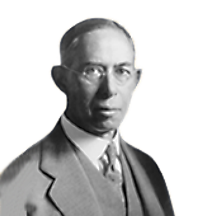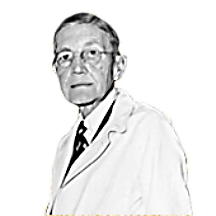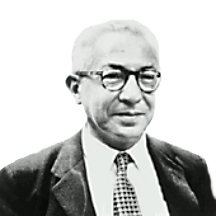Isidor Rabi was born in 1898 in Rymanow, then Austro-Hungary, to-day Poland. When he was one year old, his family immigrated to the United States. His parents were extremely orthodox and hoped that he would become ordained as a rabbi, but he showed an interest in technology and science.
He began to study chemistry and later physics, and in 1928 was awarded his doctorate from Columbia University. After receiving his doctorate, he left for Europe to work with some of the world’s greatest physicists who were developing the quantum theory. He later returned to Columbia University and in 1940 was elected to the American Academy of Science.
During World War Two, Rabi turned down an invitation to participate in the project for the development of the atomic bomb, and after the war he was active in support of civilian supervision of nuclear power.
Isidor Rabi was awarded the 1944 Nobel prize in physics, “For his resonance method for recording the magnetic properties of atomic nuclei”, a method that provided valuable information for research on the detection of magnetic infection of crystals. This method is also used in medicine and biology for the identification of materials in tissues.
When he was awarded the Nobel prize, it was said that he had “established radio contact with the sub-nuclear world“.
Isidor Rabi passed away in 1988.
His discoveries enabled the development of the atomic clock, radar and the use of laser and maser rays.





